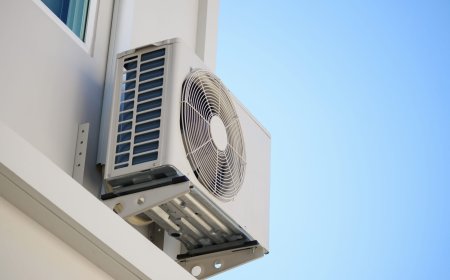Why Are So Many Americans Renting Forever? The Shocking Truth Behind Homeownership

For decades, the American Dream was synonymous with owning a homea white picket fence, a spacious backyard, and a place to call your own. But today, an increasing number of Americans are choosing (or being forced) to rent indefinitely. Whats driving this shift? Is it skyrocketing home prices, stagnant wages, or changing priorities?
In this deep dive, well uncover the real reasons behind the decline in homeownership and why renting has become the new normal for millions.
The Decline of Homeownership: A Look at the Numbers
Homeownership rates in the U.S. have been declining steadily since the 2008 financial crisis. While there was a slight rebound post-pandemic, many Americansespecially millennials and Gen Zare still opting out of buying homes. Heres why:
1. Soaring Home Prices & Unaffordability
The median home price in the U.S. has skyrocketed, far outpacing wage growth. According to recent data:
-
The median home price in 2024 was$420,000, up nearly40%since 2020.
-
Mortgage rates have hovered around6-7%, making monthly payments unaffordable for many.
-
Down payments (typically10-20%) are out of reach for first-time buyers.
For most renters, saving for a down payment while paying high rent is nearly impossible.
2. Student Debt & Financial Burdens
Millennials, the largest generation in the workforce, are drowning in student loans.
-
The average student debt is$37,000per borrower.
-
Monthly loan payments delay saving for a home.
-
Strict mortgage lending standards make it harder to qualify.
With such financial strain, many young Americans see renting as their only option.
3. Rising Cost of Living & Inflation
Inflation has made everyday expensesgroceries, healthcare, childcaremore expensive, leaving little room for homeownership.
-
Rents have increased by25%since 2020.
-
Wages havent kept up with inflation.
-
Many families are forced to prioritize short-term survival over long-term investments like buying a home.
4. Flexibility Over Stability
Unlike previous generations, younger Americans value flexibility.
-
Job mobility is higherpeople switch careers and relocate more often.
-
Renting allows for easier moves without the hassle of selling a home.
-
Urbanization trends favor renting in walkable cities over suburban homeownership.
5. Fear of Another Housing Crash
The trauma of the 2008 housing crisis still lingers. Many Americans fear:
-
Buying at the peak of the market.
-
Being stuck with an underwater mortgage.
-
The instability of the housing market.
Renting feels like a safer, lower-risk option.
The Hidden Costs of Renting Forever
While renting provides short-term flexibility, it comes with long-term downsides:
-
No Equity Building Renters pay landlords instead of investing in their own assets.
-
Rent Hikes Landlords can increase rent annually, making budgeting unpredictable.
-
Limited Control Renters cant renovate or customize their living space.
-
No Tax Benefits Homeowners enjoy mortgage interest deductions; renters get no such perks.
Is There a Solution?
While the housing market may seem bleak, there are still pathways to homeownership:
-
Government Programs FHA loans, VA loans, and first-time buyer programs help with down payments.
-
Alternative Markets Some buyers are turning to smaller cities or rent-to-own options.
-
Co-Living & Shared Equity Innovative housing models are emerging to make ownership more accessible.
Final Thoughts: The Future of Housing in America
The dream of homeownership isnt deadits just harder to achieve. Economic pressures, lifestyle changes, and market conditions have forced many Americans into long-term renting. However, with strategic planning, financial discipline, and policy changes, homeownership can still be within reach.
For those looking to invest in land or explore alternative real estate opportunities,Avenza Landoffers sustainable and affordable options. Whether youre renting now or planning to buy in the future, understanding the market is the first step toward financial freedom.


































